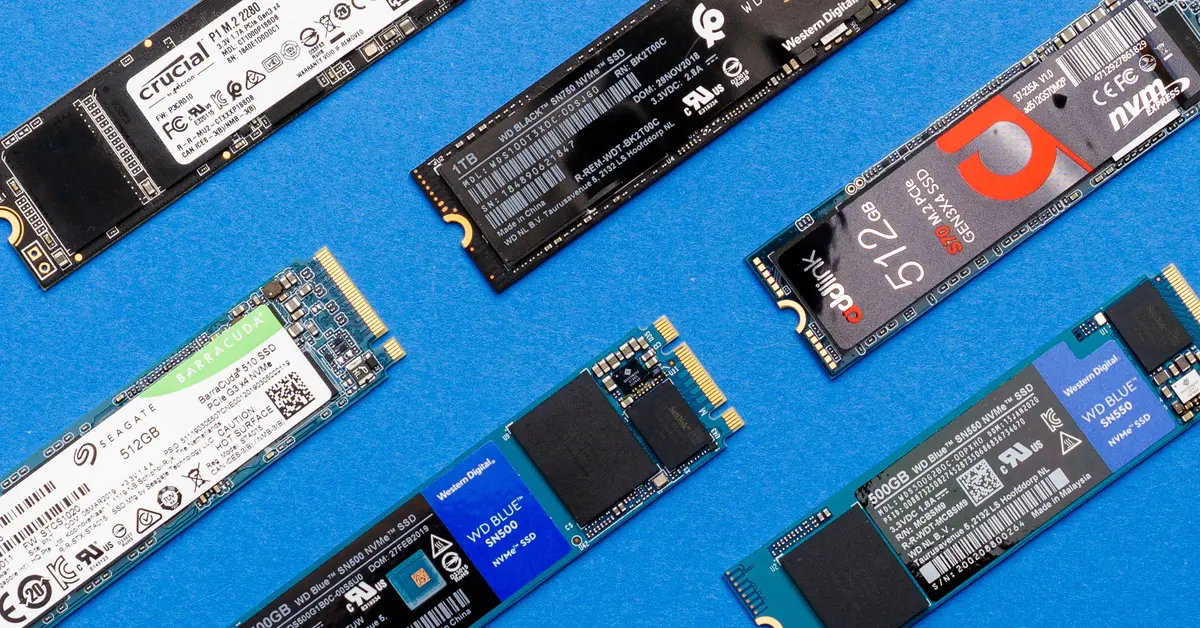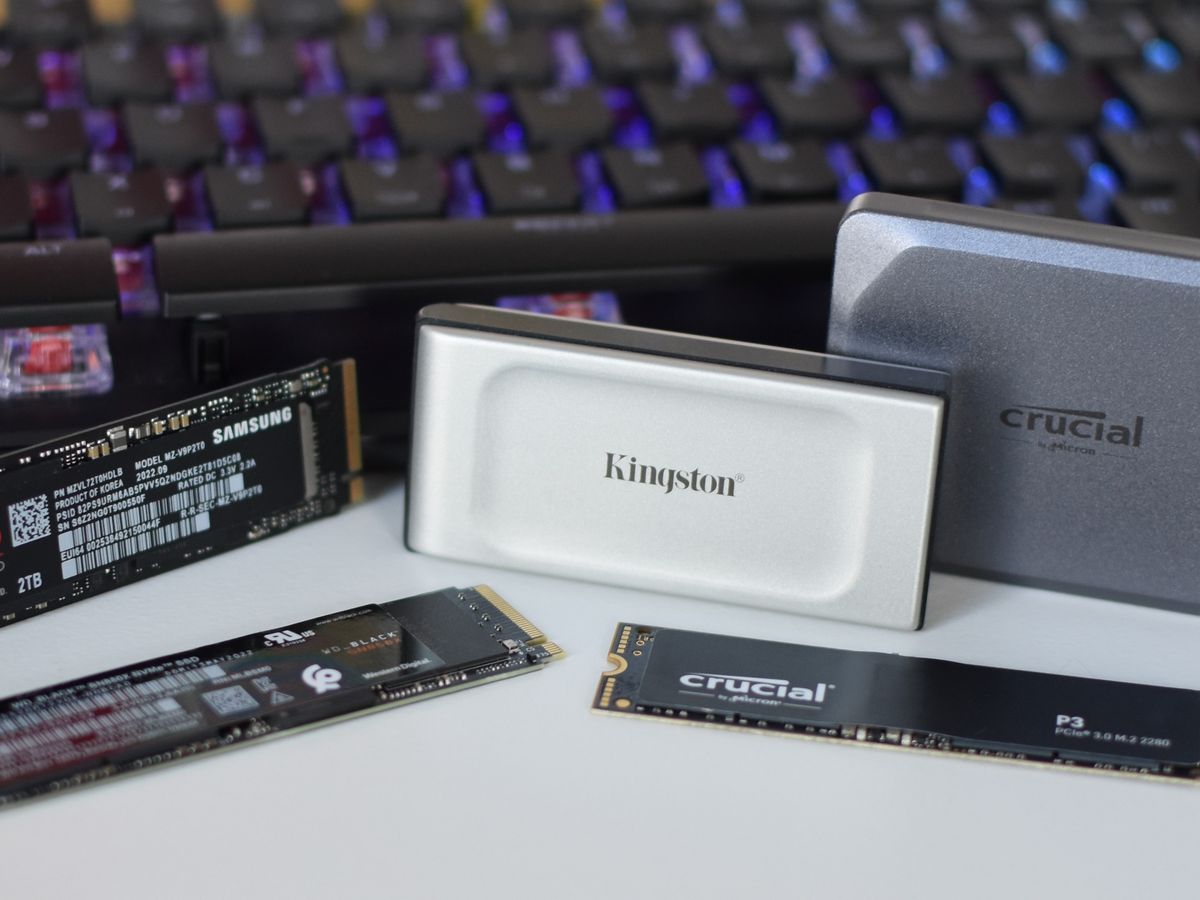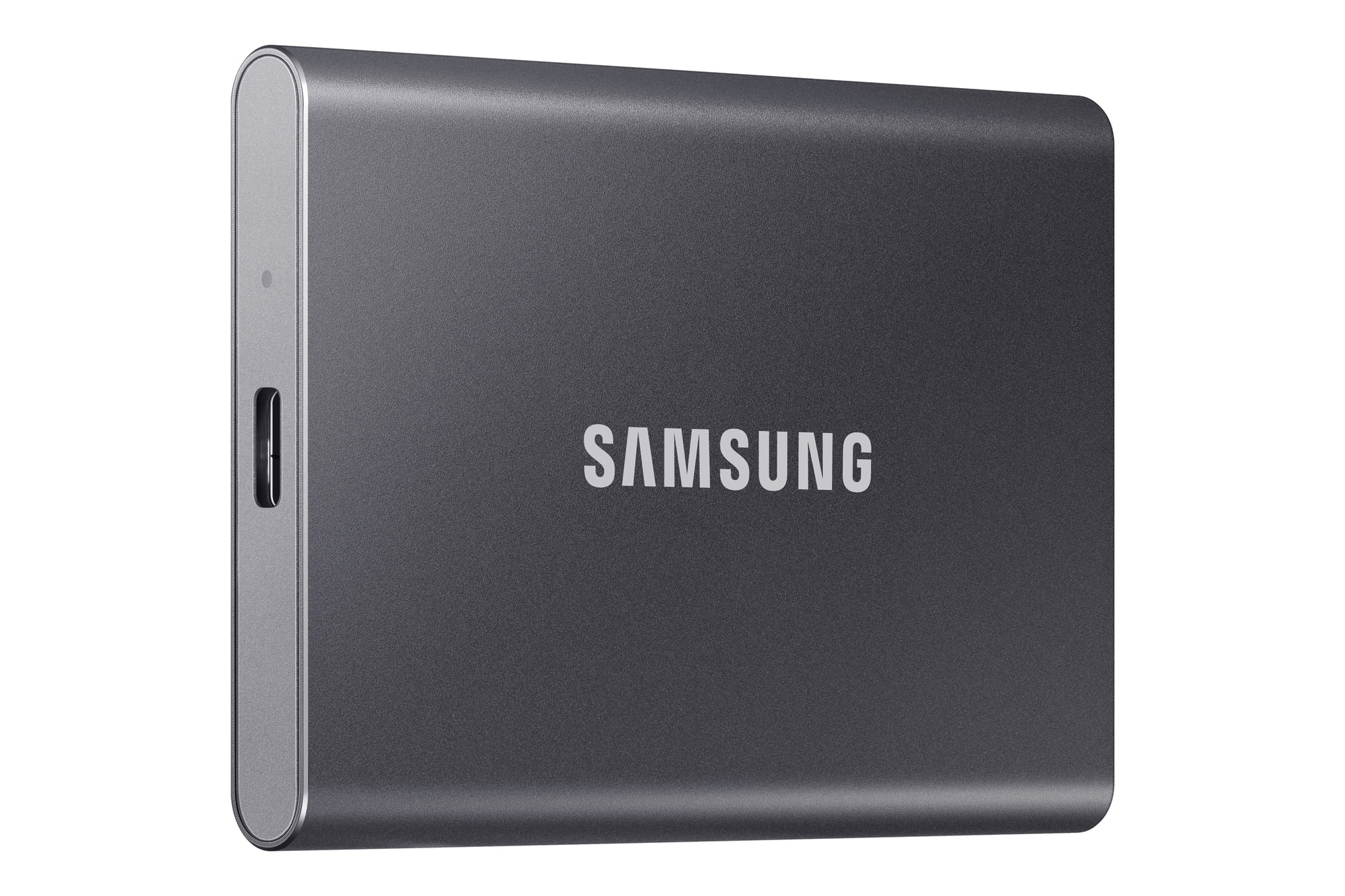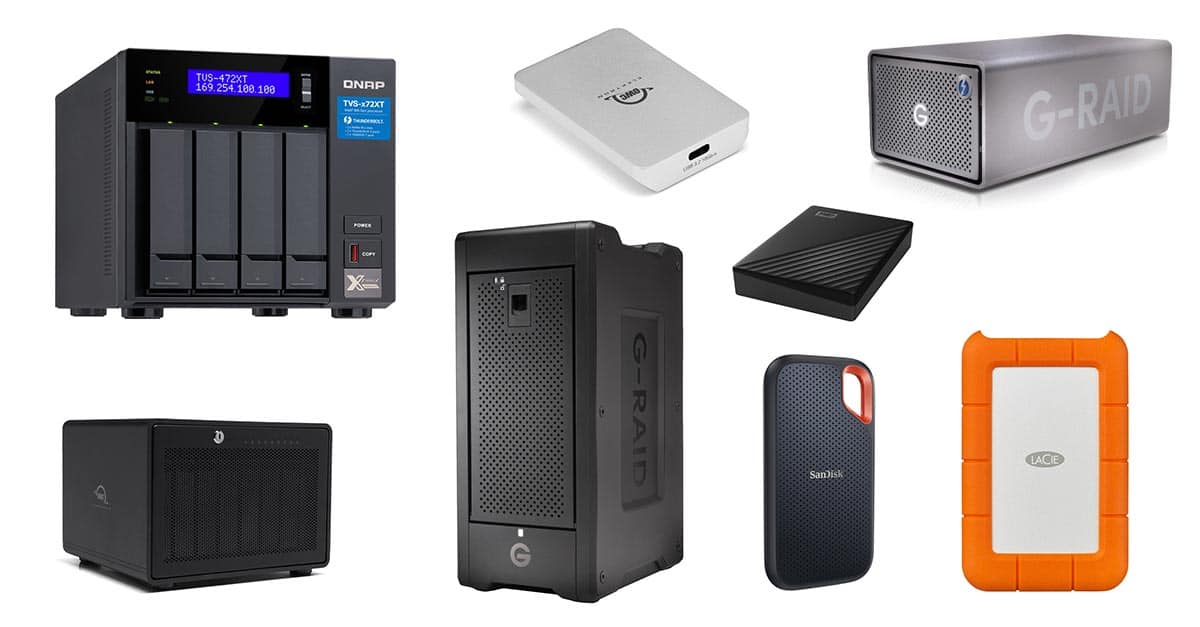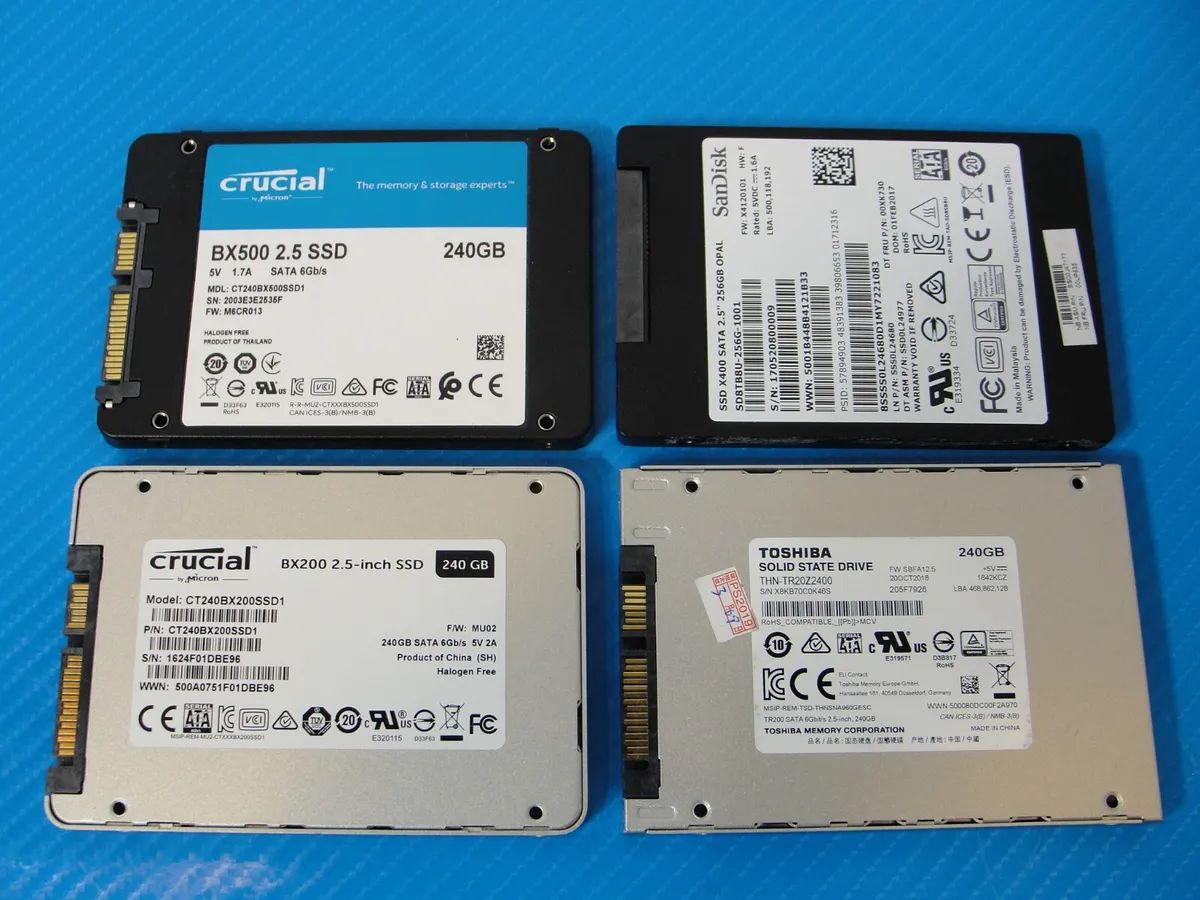Introduction
Solid State Drives (SSDs) have revolutionized the gaming industry by providing faster load times, reduced lag, and improved overall system performance. If you’re a passionate gamer, you might be considering getting an SSD for your gaming rig. However, with the wide range of SSD sizes available on the market, it can be challenging to determine which one will meet your specific needs. In this article, we will delve into the factors that you should consider when choosing an SSD for gaming, with a particular focus on storage capacity.
SSDs are a type of storage device that use flash memory to store and retrieve data. Unlike traditional hard disk drives (HDDs), which have spinning platters and moving read/write heads, SSDs have no moving parts. This makes them significantly faster, more durable, and less prone to mechanical failures. With an SSD, you can experience shorter boot times, quicker game installations, and reduced loading screens during gameplay.
When it comes to choosing the right SSD for gaming, there are several factors to consider beyond just storage capacity. The speed of the SSD, as measured in read and write speeds, is crucial for ensuring smooth game performance. Additionally, the interface of the SSD, such as SATA or NVMe, can impact the overall speed and compatibility with your gaming system.
However, the storage capacity of the SSD is perhaps the most essential factor to consider. Gaming files are notoriously large, with modern games often requiring several gigabytes or even terabytes of storage space. It’s crucial to choose an SSD with an adequate capacity to store your games, operating system, and other files without running out of space. Investing in the right SSD size will ensure that you don’t have to worry about deleting games or constantly managing your storage.
In the upcoming sections, we will explore the recommended SSD sizes for different types of gamers and discuss the benefits of larger SSDs for gaming. We will also analyze the importance of balancing storage capacity with other factors, such as budget and performance requirements. By the end of this article, you will have a clear understanding of the size of solid state drive you need for gaming and be better equipped to make an informed decision for your gaming setup.
Understanding Solid State Drives (SSDs)
Before we delve into the factors to consider when choosing an SSD for gaming, let’s first understand what solid state drives (SSDs) are and how they differ from traditional hard disk drives (HDDs).
SSDs are storage devices that use flash memory to store and retrieve data. Unlike HDDs, which have spinning platters and moving read/write heads, SSDs have no moving parts. This fundamental difference in design gives SSDs a significant advantage in terms of speed, durability, and reliability.
The absence of moving parts in SSDs allows them to access data much faster than HDDs. Traditional hard drives need to physically locate the data on the spinning platters, causing delays in retrieving and loading files. SSDs, on the other hand, have near-instantaneous access times, resulting in lightning-fast boot times and reduced loading screens during gameplay.
Additionally, SSDs are more durable and resistant to physical shocks and vibrations. Since there are no moving parts that can be damaged, SSDs are less prone to mechanical failures. This makes them a reliable choice for gamers who often transport their gaming rigs or use them in environments where vibrations may occur.
Another significant advantage of SSDs is their silent operation. With no spinning platters, the only sound you’ll hear from an SSD is the faint whir of the cooling fans in your gaming rig. This silent operation allows for a more immersive gaming experience, without the distraction of constant disk activity noise.
SSDs come in various form factors, including 2.5-inch drives, M.2 drives, and PCIe expansion card drives. The choice of form factor depends on your motherboard’s compatibility and the available slots in your gaming system. M.2 and PCIe drives offer even faster speeds compared to traditional 2.5-inch SSDs, thanks to their direct connection to the motherboard and utilization of the NVMe protocol.
Overall, SSDs provide a substantial performance boost to gaming systems, resulting in faster load times, reduced lag, and smoother gameplay. With their speed, durability, and silent operation, SSDs have become the preferred choice for gamers who demand high-performance storage solutions.
Factors to consider when choosing an SSD for gaming
When selecting an SSD for gaming, it is essential to consider several factors beyond just storage capacity. These factors will help you make an informed decision based on your specific gaming needs and requirements. Let’s explore these factors in detail.
1. Speed: The speed of an SSD is a critical factor for gaming performance. It determines how quickly your games load and how fast your system can access and retrieve game files. The speed is typically measured in read and write speeds, with higher numbers indicating faster performance. Look for SSDs with high sequential read and write speeds to ensure smooth and uninterrupted gameplay.
2. Interface: The interface of the SSD is another crucial consideration. SATA and NVMe are the two main interfaces used in SSDs. SATA drives offer good performance at an affordable price, but they have a maximum speed limitation. NVMe drives, on the other hand, utilize the PCIe interface and deliver significantly faster speeds. If your gaming system supports NVMe, it is recommended to opt for an NVMe SSD for maximum performance.
3. Form Factor: SSDs come in different form factors, such as 2.5-inch drives, M.2 drives, and PCIe expansion card drives. The form factor you choose depends on your motherboard’s compatibility and available slots. M.2 and PCIe drives offer higher speeds due to their direct connection to the motherboard, making them ideal for gaming systems that require maximum performance.
4. Endurance and Lifespan: Consider the endurance rating and lifespan of the SSD. SSDs have a limited number of program-erase cycles, after which their performance may degrade. Look for SSDs with higher endurance ratings to ensure they can withstand intensive gaming sessions and last longer before needing replacement.
5. Price: While it’s tempting to go for the largest and fastest SSD available, price is also an important factor to consider. SSDs with larger capacities and faster speeds generally come at a higher cost. Determine your budget and prioritize based on your gaming needs. It might be more practical to strike a balance between storage capacity, speed, and cost.
6. Future-proofing: Consider your future gaming needs when choosing an SSD. Games are becoming increasingly larger in size, and future updates may require even more storage space. It’s wise to invest in an SSD with more capacity than you currently need to ensure you won’t run out of space in the future.
By considering these factors, you can narrow down your options and find an SSD that offers the right balance of performance, capacity, and price for your gaming needs. With the right SSD, you can enjoy faster load times, reduced lag, and a seamless gaming experience.
The importance of storage capacity for gaming
Storage capacity plays a crucial role in determining the overall gaming experience. The larger the storage capacity of your solid state drive (SSD), the more games and files you can store without running out of space. Let’s explore the importance of storage capacity for gaming in more detail.
1. Game Size: Modern games are becoming more massive in size, often requiring tens or even hundreds of gigabytes of storage space. Having a sufficient amount of storage capacity allows you to install and store multiple games on your SSD without having to constantly delete or move files to make room. This convenience ensures that your favorite games are always readily available for play.
2. Game Updates and DLCs: In addition to the initial game installation, games often receive regular updates, patches, and downloadable content (DLCs). These updates can take up a significant amount of storage space over time. With a larger SSD, you can accommodate these updates without worrying about running out of space or having to resort to external storage solutions.
3. Operating System and System Files: It’s not just games that require storage space; your operating system and system files also take up a portion of your SSD capacity. A larger SSD ensures that you have ample space for your operating system and other essential system files. This can contribute to faster system performance and smoother overall operation.
4. Reduced Loading Times: One of the notable advantages of SSDs is their ability to significantly reduce loading times in games. With a larger SSD, more game data can be stored in the drive, resulting in faster access and shorter loading screens. This means you can jump into your favorite games faster and spend less time waiting for the next level or scene to load.
5. Future-Proofing: As new games are developed and released, their size and storage requirements continue to increase. By choosing an SSD with a larger storage capacity, you are future-proofing your gaming setup. You won’t have to worry about constantly upgrading or replacing your SSD to accommodate the growing size of games. You can easily install new games without having to sacrifice or delete older ones.
It’s important to consider your current and future gaming needs when deciding on the storage capacity of your SSD. While larger SSDs with more storage capacity tend to be more expensive, they offer flexibility, convenience, and room for growth. If you’re a dedicated gamer or someone who enjoys having a vast library of games at their fingertips, investing in a larger capacity SSD is a wise choice.
In the next section, we will explore the recommended SSD sizes for different types of gamers, helping you determine the ideal storage capacity based on your gaming habits and preferences.
Recommended SSD sizes for different types of gamers
Choosing the right SSD size depends on your gaming habits, preferences, and storage needs. While there is no one-size-fits-all solution, we can provide some general recommendations for different types of gamers. Keep in mind that these recommendations are based on typical game sizes and storage requirements. Let’s explore the recommended SSD sizes for different types of gamers.
1. Casual Gamers: Casual gamers who play a few games occasionally may find a smaller SSD sufficient for their needs. A 500GB SSD is typically recommended as it offers enough storage space to install a handful of games, along with the operating system and essential files. This size should be enough for casual gamers who have a limited game library and don’t mind uninstalling games when they want to play something new.
2. Enthusiast Gamers: Enthusiast gamers who enjoy playing a variety of games and want the freedom to have multiple titles installed at once might consider a larger capacity SSD. A 1TB or 2TB SSD would provide ample storage space for a substantial game library, along with the operating system and other software. This size allows for more flexibility and eliminates the need to constantly uninstall and reinstall games or juggle storage space.
3. Professional Gamers / Streamers: Professional gamers, streamers, or content creators who frequently record or stream gameplay footage may require even more storage space. A 2TB or larger SSD is recommended to accommodate the larger game files, video recordings, and editing software. This larger capacity ensures there is enough room for the extensive gaming library, software tools, graphical assets, and other multimedia files.
4. Game Developers: Game developers or those involved in the game development process require vast amounts of storage for their work. A 2TB SSD or larger is highly recommended due to the large size of project files, game engines, and the need to store multiple versions and iterations of games. This size allows for efficient workflow management and ensures developers have ample space to work on their projects without storage limitations.
5. Collectors or Archivists: Gamers who have a passion for collecting and archiving games may require terabytes of storage. In this case, a multi-drive setup consisting of a high-capacity SSD (such as 4TB) combined with additional traditional hard drives or network-attached storage (NAS) can provide ample space for an extensive game library.
Remember that these recommendations are just general guidelines and can be adjusted based on individual preferences and specific storage needs. It’s always better to have more storage capacity than not enough, as it allows for flexibility in managing your game library and future expansions.
In the next section, we will explore the benefits of larger SSDs for gaming and discuss why it might be worth considering investing in a higher capacity drive for an enhanced gaming experience.
Benefits of larger SSDs for gaming
Investing in a larger solid-state drive (SSD) for gaming comes with several significant benefits that can enhance your gaming experience. Let’s explore the advantages of opting for a higher capacity SSD.
1. Ample Storage Space: The most apparent benefit of a larger SSD is the increased storage capacity it offers. With more space available, you can install and store a larger number of games, reducing the need to uninstall and reinstall titles frequently. This convenience allows you to have a diverse collection of games readily accessible whenever you want to play, saving you time and effort.
2. Reduced Game Loading Times: Larger SSDs provide more room for game files, resulting in faster access to data during gameplay. This translates into shorter loading times and smoother transitions between game levels or open-world environments. You’ll spend less time waiting for games to load and more time enjoying immersive gaming experiences.
3. Seamless Game Updates: Games often receive updates, patches, and downloadable content (DLCs) that can take up a substantial amount of storage space. With a larger SSD, you won’t have to worry about running out of space or constantly managing your storage to accommodate these updates. You can seamlessly download and install updates without the hassle of removing other games or files to make room.
4. Flexibility for Future Games: As games continue to increase in size due to advancements in graphics and game design, a larger SSD ensures you’re ready for the future. Having more space available means you can take advantage of upcoming game releases without worrying about storage limitations. You won’t have to compromise on which games to keep installed and can confidently explore new gaming experiences without sacrificing old favorites.
5. Enhanced Performance: While the size of the SSD itself doesn’t directly impact gaming performance, having more storage space can indirectly enhance performance. A well-managed SSD with ample free space ensures that the drive can work efficiently and maintain consistent speeds. It’s important to keep some free space on your SSD to prevent performance degradation over time.
6. Multitasking and File Management: A larger SSD not only provides storage space for games but also allows for better organization and management of other files. You can store additional software, media files, and work-related documents on the same SSD, making it a versatile storage solution for all your needs. This versatility makes it easier to switch between gaming and other activities without the need to invest in separate drives.
By investing in a larger SSD, you’ll have more storage space, reduced loading times, and flexibility to accommodate future gaming needs. It’s a long-term investment that ensures you can enjoy an expansive game library without worrying about storage limitations. Whether you’re a casual gamer or a professional streamer, a larger capacity SSD can greatly enhance your gaming experience.
In the next section, we will discuss the importance of balancing storage capacity with other factors such as budget, speed, and performance to make a well-informed decision on your SSD purchase.
Balancing storage capacity with other factors
While storage capacity is a crucial factor when choosing an SSD for gaming, it’s important to strike the right balance with other considerations. Here, we’ll discuss how to balance storage capacity with other factors to make an informed decision on your SSD purchase.
1. Budget: The cost of SSDs tends to increase with higher storage capacities. It’s essential to consider your budget and evaluate the trade-off between storage capacity and price. Assess your gaming needs and financial constraints to choose an SSD that provides an optimal balance of storage capacity and affordability.
2. Speed: Besides storage capacity, the speed of an SSD is crucial for gaming performance. Consider the read and write speeds of the SSD and prioritize getting a drive that offers fast data transfer rates. While larger capacity SSDs generally have high-speed capabilities, ensure that the drive you choose meets the speed requirements for smooth gaming and efficient data access.
3. Performance Requirements: Assess your gaming requirements and determine how much storage space is truly necessary. Consider the size of your game library, the frequency of game installations, and the need for multitasking or content creation. The right balance depends on your specific use case and preferences.
4. Future Needs: When choosing an SSD, think about your future gaming needs. Games are continually increasing in size, and you may want to expand your game library over time. Consider investing in a larger capacity SSD to accommodate future game releases and updates without the need for constant storage management or upgrades.
5. Storage Management: If you’re concerned about storage space but have budget constraints, you can consider a smaller capacity SSD supplemented with additional storage solutions. This can include external hard drives or cloud storage for storing files and games that are not frequently accessed. This approach allows you to balance cost and storage needs while maintaining accessibility to all your games and files.
6. Flexibility: Remember that SSDs are upgradeable and can be expanded or replaced in the future. If you need more storage capacity down the line, you can always upgrade your SSD or add additional drives to your system. This flexibility allows you to start with a smaller SSD and expand as needed in the future.
Finding the balance between storage capacity and other factors is a personal decision that depends on your specific gaming requirements and budget. Consider your budget, speed requirements, future needs, and various storage management options to make the best decision for your gaming setup.
In the following section, we will summarize the key points discussed in this article and provide a concluding statement to help you make your final decision on choosing the right SSD size for your gaming needs.
Conclusion
Choosing the right solid-state drive (SSD) size for gaming is a critical decision that can greatly impact your gaming experience. By considering factors such as storage capacity, speed, budget, and future needs, you can make an informed decision that meets your gaming requirements.
Understanding the benefits of SSDs and their superiority over traditional hard disk drives (HDDs) is key. SSDs offer faster load times, reduced game lag, and a more reliable and durable storage solution. Additionally, the absence of moving parts contributes to their silent operation, further enhancing the immersive gaming experience.
Storage capacity is an important consideration, especially with the increasing size of modern games and the need for storing game updates and DLCs. For casual gamers, a 500GB SSD is typically sufficient, while enthusiast gamers may find a 1TB or 2TB SSD more suitable. Professional gamers, game developers, and collectors may require even larger capacities to accommodate their extensive libraries and storage requirements.
However, it’s crucial to balance storage capacity with other factors. Consider your budget, the speed and performance needs of your gaming system, and your future gaming plans. This will enable you to make a decision that optimizes storage capacity while still meeting other essential requirements.
Remember that SSDs are upgradeable, and you can always add more storage in the future if needed. It’s better to invest in a slightly larger SSD now to provide room for future game releases and updates. Additionally, consider utilizing storage management solutions such as external drives or cloud storage to supplement your main SSD.
In conclusion, choosing the right SSD size for gaming involves careful consideration of various factors. Balancing storage capacity with budget, speed, performance, and future needs is vital to ensure a seamless and enjoyable gaming experience. By doing so, you can build a gaming setup that offers ample storage space, faster load times, and the flexibility to accommodate your growing game library. So, take the time to evaluate your gaming needs and make an informed decision to enhance your gaming journey.







